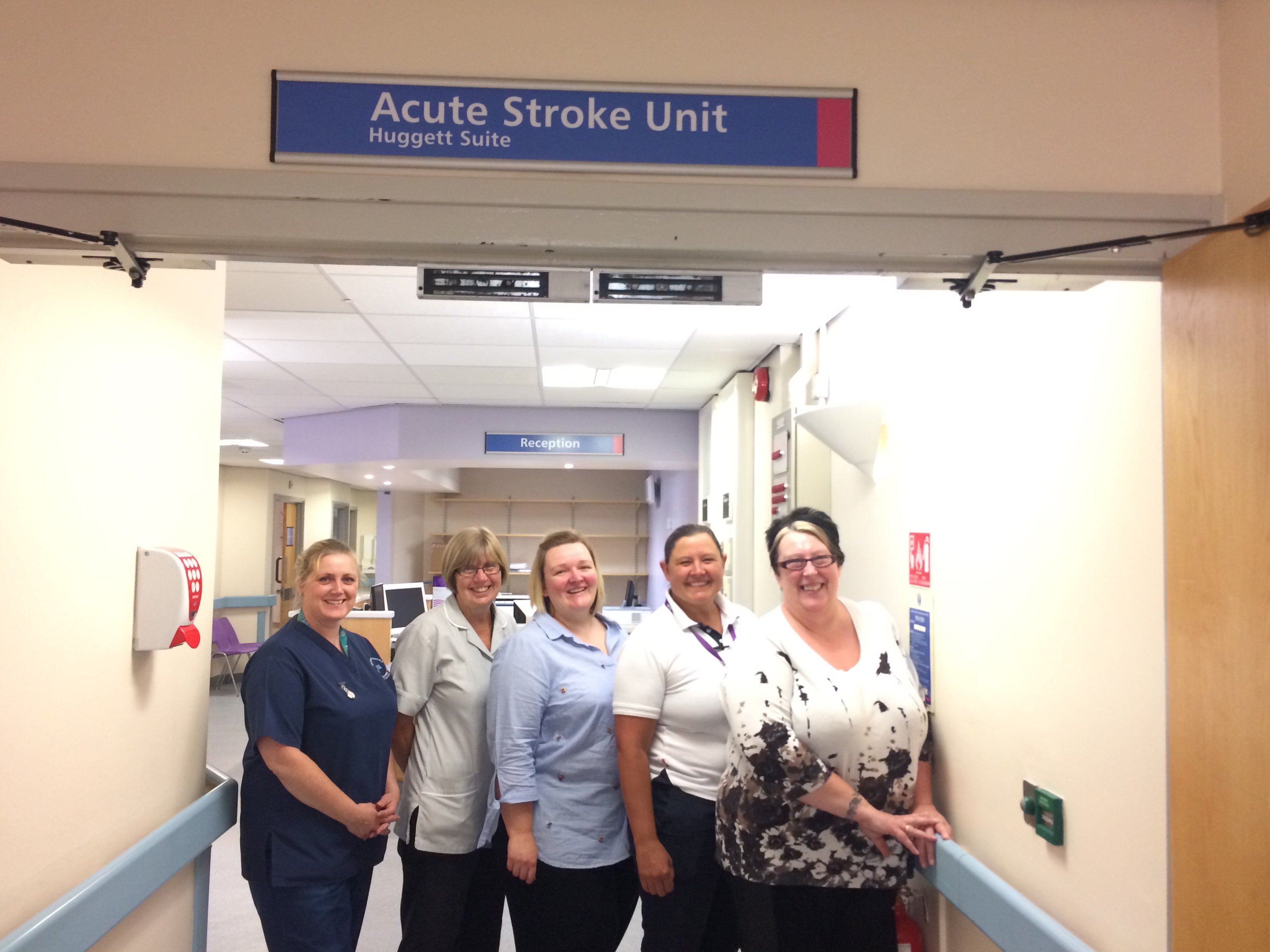The Huggett Suite, is based in the Centenary Building, and will provide the RLI with six acute stroke beds and an assessment bay. In addition to the opening of the new unit, clinicians from University Hospitals of Morecambe Bay NHS Foundation NHS Trust (UHMBT) and from across the bay have come together to try and reduce the number of people in the area that suffer strokes, and improve the services for those who have a stroke.
Patients suffering a stroke will now come into the Emergency Department (ED) at the RLI to be assessed for eligibility for clot busting treatment in the department before being transferred to the new suite. There, they will be monitored by staff specially trained to care for patients immediately after a stroke.
The suite is equipped with ceiling hoists to make lifting safer for patients and staff, continuous heart monitoring equipment, a patient gym and a therapy kitchen. Linda Dunn, Clinical Lead for Stroke, UHMBT, said: “A designated unit, with staff skilled in the management of acute stroke, will allow us to offer our patients the very best chance of recovery. Direct access to this type of unit with close monitoring and early intervention from a multi-disciplinary team is associated with a reduction in disability, death and a reduced length of stay in hospital. “To ensure that we have the right staff in the unit, the Trust has recruited registered nursing, physiotherapy, occupational therapy and speech and language therapy staff. “It is an exciting time for us as a team. Before the suite opened, patients who had a stroke would come into ED and then go up to the Lancaster Suite, a general medical ward which houses stroke beds, before being transferred to Ward 23 for rehabilitation. Now patients will come straight to a dedicated acute stroke bed on the Huggett Suite where they can be cared for by our specialist stroke team.”
Across the UK there are around 100,000 strokes a year. In 2015, there were 605 strokes in Morecambe Bay with the total healthcare and social care costs for this local group of patients being £13.4 million in 2015/16 – rising to £27.4 million over five years.
Michelle Andersen, Ward Manager for the Huggert Suite, UHMBT, said: “It is nice to see the project come to fruition. We have a fantastic team on board who are passionate about giving the very best care to patients who suffer from a stroke.” Ward 23 in Medical Unit 2 at the RLI will remain as a rehabilitation facility for stroke patients who need longer term rehabilitation. The Huggett Suite was given its name in recognition of the contribution that consultant Dr Isabel Huggett has made to stroke and elderly medicine at the RLI. Dr Huggett retired from the Trust in 2014. An official opening is planned for later in the year. Stroke is a medical emergency that occurs when the blood supply to the brain is interrupted by either a blockage or rupture of an artery in the brain. The lack of blood supply starves the brain cells of oxygen and nutrients, causing brain cells to become damaged or die. This damage can have different effects, depending on where it happens in your brain. Sue Smith, Executive Chief Nurse, UHMBT, said: “I am delighted to see the Huggett Suite is now open to patients and look forward to the official opening later in the year. The new suite will support our staff and help us to provide outstanding care to patients for years to come.”

